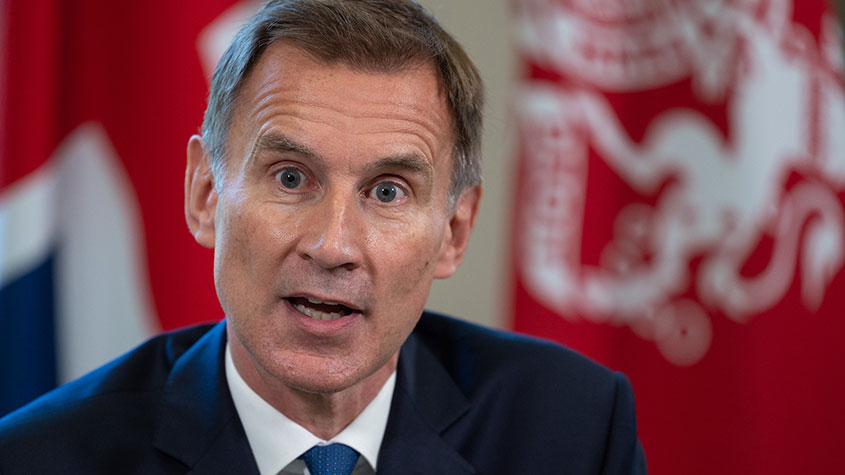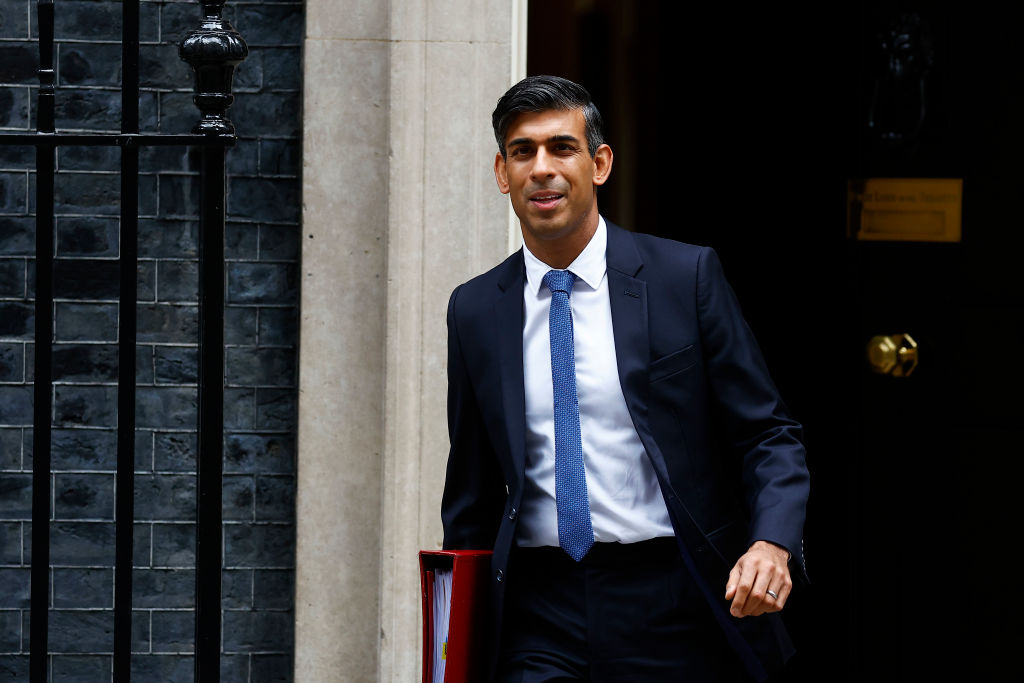Autumn Statement: Energy Price Guarantee extended – but will not be as generous
Hunt will extend the Energy Price Guarantee, which was due to end in April 2023. But, the support will be significantly lower. Here’s everything you need to know.


Get the latest financial news, insights and expert analysis from our award-winning MoneyWeek team, to help you understand what really matters when it comes to your finances.
You are now subscribed
Your newsletter sign-up was successful
Want to add more newsletters?

Twice daily
MoneyWeek
Get the latest financial news, insights and expert analysis from our award-winning MoneyWeek team, to help you understand what really matters when it comes to your finances.

Four times a week
Look After My Bills
Sign up to our free money-saving newsletter, filled with the latest news and expert advice to help you find the best tips and deals for managing your bills. Start saving today!
The Energy Price Guarantee (EPG) will be extended, announced chancellor Jeremy Hunt in his Autumn Statement - but the typical average household will still see their energy bill rise to an estimated £3,000 starting April 2023.
The EPG was introduced by Liz Truss and Kwasi Kwarteng to help households with rising energy bills in the September mini-Budget. Under the EPG, the average typical household was expected to pay £2,500 in bills as opposed to the predicted £3,549 a year from 1 October.
This was due to be the case until October 2024, however Hunt reduced this to April 2023 due to the cost it would have to the government. Hunt said looking beyond April, it would be “irresponsible for the government to continue exposing the public finances to unlimited volatility in international gas prices”.
MoneyWeek
Subscribe to MoneyWeek today and get your first six magazine issues absolutely FREE

Sign up to Money Morning
Don't miss the latest investment and personal finances news, market analysis, plus money-saving tips with our free twice-daily newsletter
Don't miss the latest investment and personal finances news, market analysis, plus money-saving tips with our free twice-daily newsletter
Today’s announcement is not a price cap – your bill will depend on how much energy you actually use. The price that energy firms charge per unit of energy will be capped, but it’s still increasing.
What will happen to energy prices after April 2023?
Analysts had predicted bills would rise to £3,700 from April 2023 without government interference. The £3,000 average bill prediction is lower, but it’s still a marked increase from what you pay now.
“The new energy price cap of £3,000 for a typical household is 20% more than people are currently paying, and two and a half times where energy bills were last summer, when the typical energy bill was around £1,200,” says Sarah Pennells, consumer finance specialist at Royal London.
Whether wholesale gas prices will go down remains to be seen, as these have been driven up in part by Russia’s invasion of Ukraine. However, there have been forecasts suggesting energy bills could hit as much as £6,000 a year, based on average typical use, in 2023.
With so much complexity in the markets, it can be difficult to predict which direction gas prices will go.
Will I still get the £400 energy grant?
The £400 energy grant, announced by the former chancellor Rishi Sunak will still be paid to all households on the energy grid. But, this will come to and end in March, meaning the actual hike to your energy bill will be higher.
The first of these payments started in October and will end in March. See our article on who will get the £400 energy grant and how it will be paid.
Get the latest financial news, insights and expert analysis from our award-winning MoneyWeek team, to help you understand what really matters when it comes to your finances.
Kalpana is an award-winning journalist with extensive experience in financial journalism. She is also the author of Invest Now: The Simple Guide to Boosting Your Finances (Heligo) and children's money book Get to Know Money (DK Books).
Her work includes writing for a number of media outlets, from national papers, magazines to books.
She has written for national papers and well-known women’s lifestyle and luxury titles. She was finance editor for Cosmopolitan, Good Housekeeping, Red and Prima.
She started her career at the Financial Times group, covering pensions and investments.
As a money expert, Kalpana is a regular guest on TV and radio – appearances include BBC One’s Morning Live, ITV’s Eat Well, Save Well, Sky News and more. She was also the resident money expert for the BBC Money 101 podcast .
Kalpana writes a monthly money column for Ideal Home and a weekly one for Woman magazine, alongside a monthly 'Ask Kalpana' column for Woman magazine.
Kalpana also often speaks at events. She is passionate about helping people be better with their money; her particular passion is to educate more people about getting started with investing the right way and promoting financial education.
-
 Should you buy an active ETF?
Should you buy an active ETF?ETFs are often mischaracterised as passive products, but they can be a convenient way to add active management to your portfolio
-
 Power up your pension before 5 April – easy ways to save before the tax year end
Power up your pension before 5 April – easy ways to save before the tax year endWith the end of the tax year looming, pension savers currently have a window to review and maximise what’s going into their retirement funds – we look at how
-
 Rishi Sunak: MoneyWeek Talks
Rishi Sunak: MoneyWeek TalksPodcast On the MoneyWeek Talks podcast, Rishi Sunak tells Kalpana Fitzpatrick that we need better numeracy skills to improve financial literacy and boost the economy.
-
 Winter Fuel Payment cut to hit ‘1.5 million’ pensioners - what support does your energy supplier offer?
Winter Fuel Payment cut to hit ‘1.5 million’ pensioners - what support does your energy supplier offer?Advice The Winter Fuel Payment is being scrapped for most pensioners this year. But you may be able to access extra support from your energy supplier. Here’s what’s on offer.
-
 Insurance tax cut could save homeowners and drivers £100s
Insurance tax cut could save homeowners and drivers £100sNews Chancellor Jeremy Hunt urged to cut insurance premium tax to help households manage rising costs
-
 Is an inheritance tax (IHT) cut on the way?
Is an inheritance tax (IHT) cut on the way?Tax Talk that the government might cut or scrap inheritance tax in its Autumn Statement is rife. We look at how it could be reformed, and what difference it would make.
-
 Act now to bag NatWest-owned Ulster Bank's 5.2% easy access savings account
Act now to bag NatWest-owned Ulster Bank's 5.2% easy access savings accountUlster Bank is offering savers the chance to earn 5.2% on their cash savings, but you need to act fast as easy access rates are falling. We have all the details
-
 Moneybox raises market-leading cash ISA to 5%
Moneybox raises market-leading cash ISA to 5%Savings and investing app MoneyBox has boosted the rate on its cash ISA again, hiking it from 4.75% to 5% making it one of top rates. We have all the details.
-
 October NS&I Premium Bonds winners - check now to see what you won
October NS&I Premium Bonds winners - check now to see what you wonNS&I Premium Bonds holders can check now to see if they have won a prize this month. We explain how to check your premium bonds
-
 Government considering cuts to inheritance tax, reports say
Government considering cuts to inheritance tax, reports sayThe Sunday Times reported government officials are considering cuts to inheritance tax ahead of the general election.
